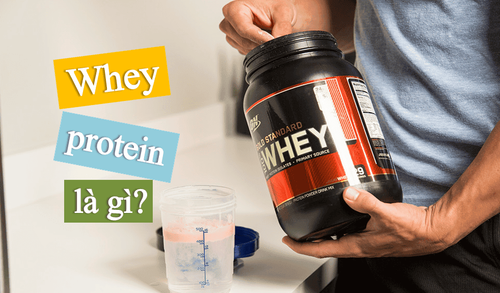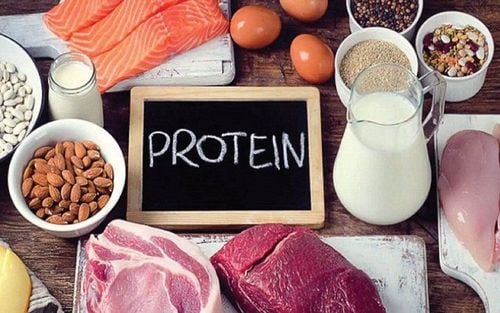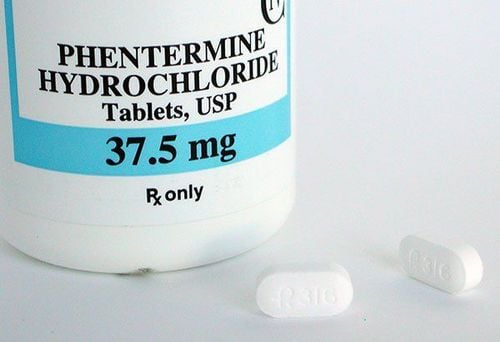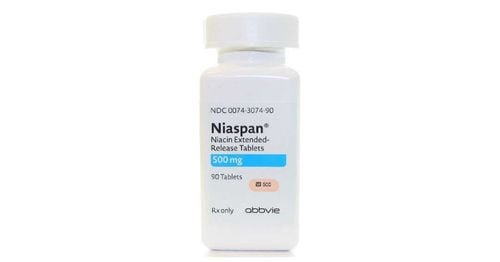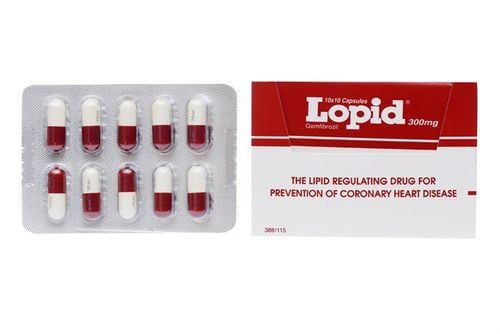This is an automatically translated article.
Whey protein is a source of quality protein, contains a lot of essential amino acids and is easily absorbed quickly. Many studies show that whey protein powder can help you increase strength, gain muscle and reduce excess fat significantly.1. What is Whey Protein?
Milk contains two main types of protein, casein (80%) and whey (20%). Answering the question of what whey is, experts say this is a mixture of proteins isolated from whey - the fatty part separated during cheese production. If you've ever opened a can of yogurt and seen a layer of liquid floating on top, it's whey. In the past, cheese makers discarded this whey until its value was discovered.After being separated during cheese production, the by-product is whey which undergoes various processing steps to become whey protein - a milk powder. Whey protein powder itself does not have a great taste, so people often add chocolate, vanilla or strawberry powders to it. Refined sugar - an unhealthy additive, is also sometimes added to whey protein products. Therefore, you need to carefully read the ingredients on the box to choose the right type.
Drinking whey protein directly or adding a few scoops of whey protein powder to a smoothie is a way to add protein to your daily diet. This can be very important for bodybuilders and fitness enthusiasts, as well as those who need to lose weight or are simply experiencing a lack of protein in their diet.
Whey is generally well tolerated, however people with lactose intolerance must still be careful. Some people may even be allergic to this whey protein.
2. Types of Whey Protein. Which whey protein is best?
Based on processing, there are 3 popular types of whey protein:
Whey protein concentrate (Concentrate): Contains about 70 - 80% protein, a little lactose (lactose) and fat. This variety has a rather delicious taste; Pure Whey Protein (Isolate): Contains 90% or more protein, has less lactose and fat, and lacks a wider range of beneficial nutrients than whey protein concentrate; Hydrolyzed Whey Protein (Hydrolyzate): This has been processed for faster absorption, but spikes insulin levels by 28-43% compared to pure whey protein. The three types of whey protein powder above all differ in protein content, taste, digestibility, and price. Around the question of which type of whey protein is best, experts say that whey protein concentrate is often the optimal choice.
They are widely sold in the market, are the cheapest but retain most of the natural and beneficial nutrients in whey. Many people also like the taste of whey protein concentrate due to its high lactose and fat content.
If you have problems tolerating concentrates, or just want to add protein and have to reduce carbs and fat, purified or hydrolyzed whey protein may be a better choice.
Although whey protein concentrate is the most common form, most of the studies done to provide statistics and reports often use pure whey protein.

Bột whey protein rất dễ dàng mua trên thị trường
3. Uses of Whey Protein
Protein is the main building block of the human body. This substance is used to make important things, including tendons, organs, and skin, as well as hormones, enzymes, neurotransmitters, and several other molecules. Protein is assembled from amino acids - small molecules linked together in chains that are the building blocks of muscle.
Some amino acids are produced by cells in the body, others are obtained from external food sources. These are called essential amino acids and all 9 are covered by whey protein. The most specific of which are leucine - an anabolic (growth-promoting) amino acid, and cysteine - which helps increase cellular antioxidant levels.
Whey protein is very effective in stimulating human growth. In fact, breast milk is 60% whey, while cow's milk makes up only 20%. This is also one of the reasons why babies need breast milk so much.
There is a lot of evidence that whey protein is effective in gaining muscle and increasing strength. In addition, whey protein powder both improves palatability and may promote weight loss.
Specifically, protein has been shown to aid weight loss by boosting metabolism and reducing cravings by 60%. Whey protein can also help with fat loss while preserving lean muscle mass. In other words, if you're trying to lose weight, supplementing with whey protein can help you both shed excess fat and gain lean muscle.
4. Other Health Benefits
Whey is not only a source of high quality protein, but also many other beneficial nutrients. These include lactoferrin, beta-lactoglobulin, alpha-lactalbumin and immunoglobulin.
In addition to increasing muscle strength and tone, whey protein rich in the amino acid cysteine also helps increase levels of glutathione - the main antioxidant in the body's cells. This is what mediates many other health benefits, such as:
Lowering blood pressure ; Reduce blood sugar; Control symptoms of stress, depression; Anti-cancer cells; Reduce symptoms of hepatitis ; Increase bone density; Improving immune function in HIV patients.

Vhey protein giúp hạ đường huyết
5. Dosage and side effects
In general, whey protein is a very safe product with dosages of 1 - 2 scoops (about 25 - 50 grams) per day, usually taken after exercise. But it is best to follow the instructions available on the packaging. It should be noted that if your diet is already high in protein, additional whey protein may not be necessary.
On the other hand, concerns about the risk of protein causing kidney damage, or contributing to osteoporosis, are unfounded. In fact, protein has been shown to help fight osteoporosis and has no adverse effects on a healthy kidney. However, people with kidney or liver problems should consult a doctor before use.
An overdose of whey protein can cause digestive problems such as nausea, bloating, diarrhea, pain and cramps. Some people may also be allergic to whey.
If you cannot tolerate whey protein concentrate, pure or hydrolyzed options may be more suitable. In addition, avoid taking whey protein and eating other protein-rich foods.
Protein is a key nutrient to help gain muscle and lose fat, which is very important for athletes, bodybuilders or needing to lose weight. Using whey protein powder is a healthy and unique way to add more protein to your diet. This is the best source of quality protein, which is effectively absorbed and used by the body.
Not only famous for its modern facilities that are standard in the medical examination and treatment process, but at Vinmec International General Hospital, there is also a team of doctors and nurses ready to listen, advise and treat diseases. as well as advice on nutrition, good food for all ages according to the individual needs of customers.
Customers can directly go to Vinmec Health system nationwide to visit or contact the hotline here for support.
Reference source: healthline.com




